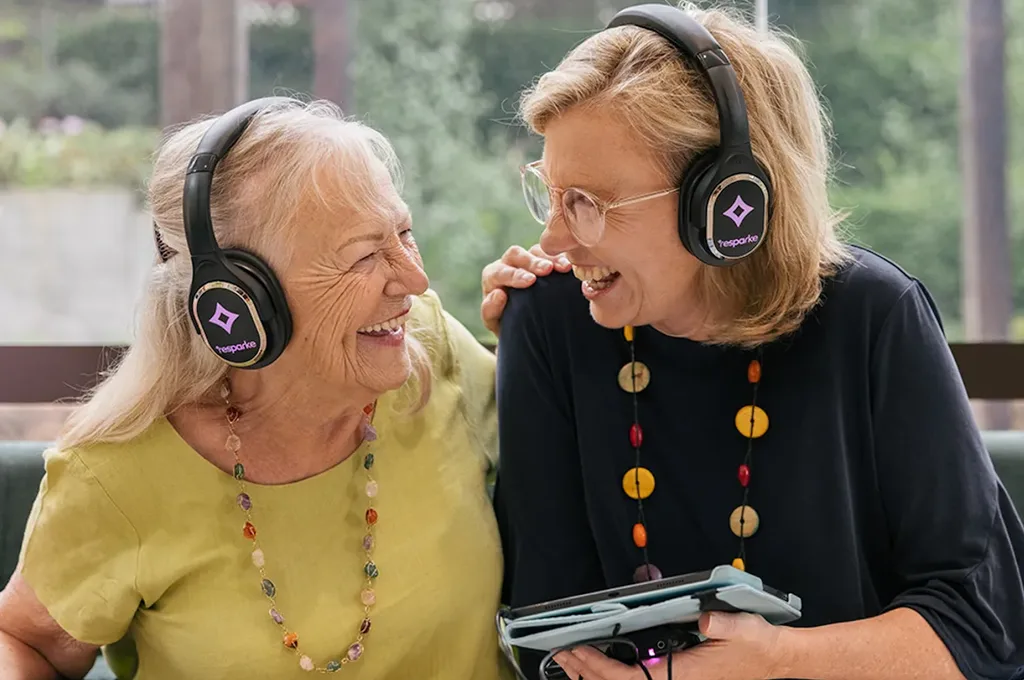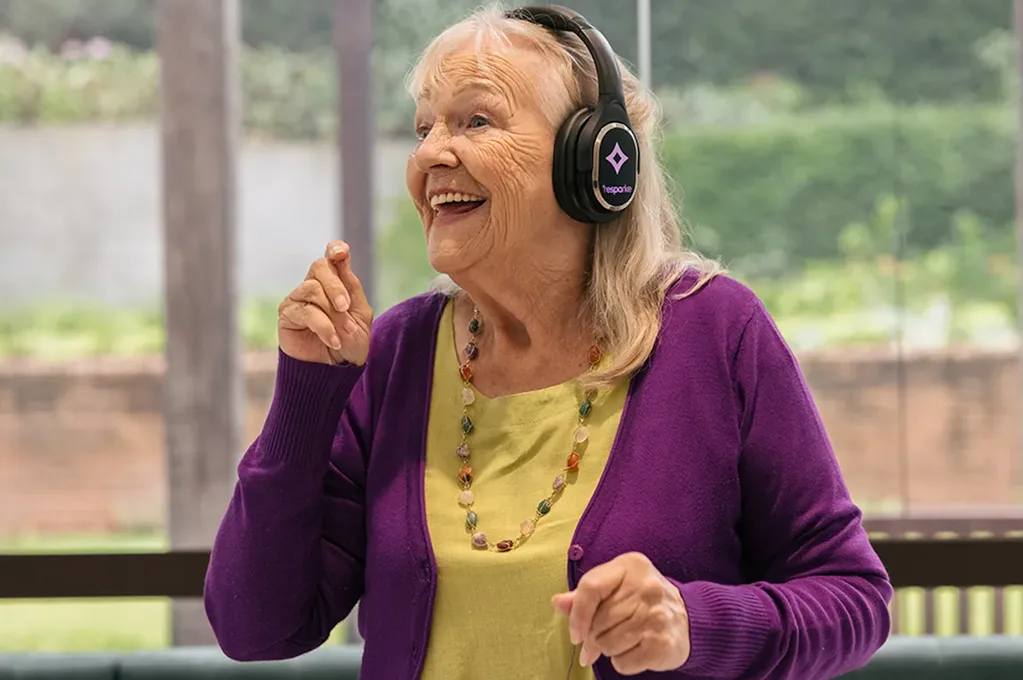“There is a stigma associated with ageing as Australians; we don’t seem to know how to deal with it,” says Alison Harrington, the visionary founder and CEO behind Resparke, a pioneering initiative leveraging the therapeutic power of music to enrich the lives of individuals grappling with dementia. On a mission to change how we care for dementia patients, Harrington is one of 33 women globally to receive the prestigious Cartier Women’s Initiative Fellowship in 2024. Coming second place in Oceania category, she was awarded USD $60,000 in grant funding at the recent ceremony in Shenzhen, China.

Currently, dementia is the leading cause of death for Australian women
Right now, over 421,000 Australians are living with dementia, a number projected to surpass 812,500 by 2054 without significant medical breakthroughs. Globally, the number of people living with dementia worldwide is expected to triple to 152 million by 2050. Dementia care needs our attention – and now.
Women currently make up 71.8% of primary caregivers
In an age marked by rapid technological progress and entrepreneurial spirit, Harrington’s path exemplifies the profound impact of empathy and innovation. As a former technology professional, she embodies the pivotal role of female leaders in driving transformative changes in healthcare technology. Often at the forefront of caregiving, women, who currently make up 71.8% of primary caregivers, intimately understand the challenges firsthand. For Harrington, transitioning towards social impact was not just a career pivot but a deeply personal mission ignited by her family’s experiences and a passionate drive to make a meaningful difference.
Harrington’s inspiration germinated from a poignant moment with her father-in-law whose struggle with dementia found solace through music when traditional treatments proved inadequate. This personal epiphany impelled Harrington to merge her technological prowess with a profound social mission, driven by a desire to bridge the gap in dementia care.
“I remember leaving his nursing home thinking, ‘Why can’t technology do more to help?'” Harrington reflects. “There was a void in how we could truly connect with and support dementia patients.”
Motivated by this gap, Harrington returned to academia, laying the groundwork for Resparke, founded in 2019
The company introduces a novel approach: silent disco technology delivering personalised music playlists tailored to evoke positive memories and emotions in dementia patients.
“Our work transcends mere entertainment; it’s about reconnecting individuals with their identities and cherished memories,” Harrington asserts. “It’s about transforming seniors’ well-being, about connecting to memories and connecting between people. The Resparke name is about the spark in somebody’s eyes when they put the headphones on.”
Resparke’s impact extends beyond care facilities, reaching communities and homes where aging populations often face isolation and limited resources. With plans to expand into home care settings and broader community outreach, Harrington envisions a future where technology bridges gaps in dementia care globally.
“We’re not just alleviating symptoms; we’re enhancing quality of life,” she emphasises. “There’s immense potential to scale our impact, ensuring everyone benefits, regardless of circumstance.”
Resparke is an evidence-based technology solution, that has significantly enhanced the wellbeing of dementia patients. To date, Resparke has reached more than 25,000 dementia patients and trained nearly 6,000 staff members. Research studies across four cohorts at the 290 facilities in Australia and New Zealand using Resparke show that residents’ mood improved nearly 80 percent and psychotropic drug use dropped by 12 percent.

Central to Resparke’s mission is challenging societal stigmas surrounding aging and dementia, particularly highlighting its disproportionate impact on women globally
Harrington advocates for a gendered lens in dementia care, urging policymakers and healthcare providers to adopt inclusive, supportive approaches.
“We need more advocates, especially women, leading this dialogue,” Harrington urges. “Dementia care demands a holistic approach that respects individual histories and cultural nuances.”
Looking forward, Harrington envisions Resparke evolving into a global movement, supported by partnerships, volunteer networks, and ongoing technological innovations. With an expanding team and unwavering commitment, she tackles challenges with the tenacity and problem-solving acumen synonymous with successful entrepreneurs.
“Our journey is just beginning,” Harrington notes. “There’s immense potential to redefine how we perceive and care for dementia patients, and we’re dedicated to realizing that vision.”
As Alison Harrington continues to pioneer new avenues in dementia care, her narrative inspires as a beacon of hope and innovation. By harnessing technology for social good, she underscores a profound truth: empathy and ingenuity can drive transformative change in unexpected ways.
The Cartier Women’s Initiative
The Cartier Women’s Initiative is a prestigious global program dedicated to supporting and empowering women entrepreneurs. Launched in 2006, it provides guidance, mentorship, and financial support to female-led businesses worldwide, focusing on innovation, sustainability, and social impact. Each year, the initiative selects finalists from diverse sectors and regions, offering them access to a comprehensive support network and valuable resources to scale their ventures. Beyond financial grants, participants benefit from tailored coaching, networking opportunities, and international visibility, fostering a community of trailblazing women driving positive change through entrepreneurship. The Cartier Women’s Initiative continues to champion gender equality and economic empowerment globally.










